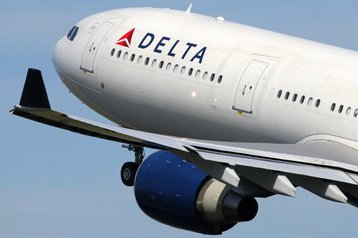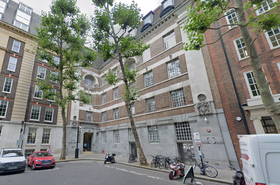Microsoft claims that its CEO personally reached out to the CEO of Delta Air Lines amid a massive multi-day outage, but never heard back. Another employee told the company it didn't need help.
Company lawyers defended the business from accusations leveled by the airline, which said it aimed to seek damages from both Microsoft and CrowdStrike for a massive outage that cost it $500 million.
Last month, cybersecurity firm CrowdStrike pushed out an update that caused blue screen of death error screens on millions of Windows systems.
Delta had to manually reset 40,000 servers, CEO Ed Bastian said. During this downtime, it canceled some 5,000 flights.
Other airlines were also disrupted - as were trains, banks, and healthcare providers - but Delta took far longer to recover. The CrowdStrike issue led to other problems arising, with Delta's IT systems unable to update flight changes.
With the company the worst hit by the update failure, the US Department of Transportation has opened an investigation into what happened.
Bastian told staff that Delta was “planning to pursue legal claims” from both Microsoft and CrowdStrike because of the outage.
Michael Carlinsky, CrowdStrike’s lawyer and co-managing partner at Quinn Emanuel Urquhart & Sullivan, on Sunday wrote to the company to say that the threats “contributed to a misleading narrative that CrowdStrike is responsible for Delta’s IT decisions and response to the outage," CNBC reports.
Carlinsky claimed that CEO George Kurtz also reached out to Bastian to “offer onsite assistance, but received no response.”
He added: “Should Delta pursue this path, Delta will have to explain to the public, its shareholders, and ultimately a jury why CrowdStrike took responsibility for its actions - swiftly, transparently, and constructively - while Delta did not."
Microsoft is being represented by Mark Cheffo, who told Delta that the company's "comments are incomplete, false, misleading, and damaging to Microsoft and its reputation."
Cheffo noted that Delta does not use Microsoft Azure or Windows cloud services. Instead, the company announced a multi-year deal with IBM in 2021 and another deal with Amazon Web Services in 2022.
“It is rapidly becoming apparent that Delta likely refused Microsoft’s help because the IT system it was most having trouble restoring - its crew-tracking and scheduling system - was being serviced by other technology providers, such as IBM, because it runs on those providers’ systems, and not Microsoft Windows or Azure," Cheffo said.
Instead, he called on the company to disclose how it used IBM and AWS.
“Our preliminary review suggests that Delta, unlike its competitors, apparently has not modernized its IT infrastructure, either for the benefit of its customers or for its pilots and flight attendants," he said.




